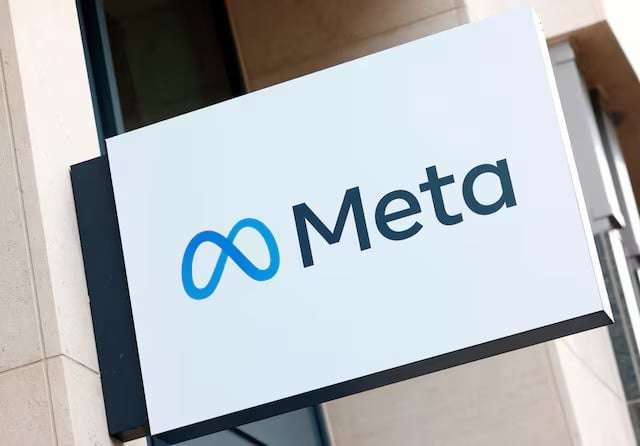Tech Giant Seeks to Boost User Interaction with Virtual Characters Amid Misinformation Concerns
Meta, the parent company of Facebook, Instagram, and WhatsApp, is set to introduce artificial intelligence (AI) bots to its social media platforms. This ambitious move aims to enhance user engagement and attract younger audiences. The AI-generated characters are designed to interact with real users, creating a new form of content and communication that Meta hopes will redefine social media interaction.
AI Characters on Social Media
Meta is deploying a suite of AI-powered tools that enable users to create virtual personas for their profiles. These AI characters, equipped with bios and profile pictures, will share AI-generated content, engage in conversations, and mimic human account behavior. This initiative is part of Meta’s broader strategy to boost engagement across its platforms, particularly targeting younger generations who are increasingly drawn to AI technology.
Connor Hayes, Meta’s Vice President of Product for Generative AI, elaborated on the vision: “We expect these AIs to actually, over time, exist on our platforms, kind of in the same way that accounts do.” Hayes noted that Meta has already developed hundreds of thousands of AI-generated characters through its tools, launched in the US earlier this year, with plans for broader availability in the coming months.
A Competitive Push for Younger Audiences
Meta’s move comes amid fierce competition from other social media platforms that have also embraced AI technology. For example, Snapchat has introduced AI tools for creating 3D avatars, while TikTok has launched Symphony, a suite of AI-powered tools for generating content. TikTok’s AI features have led to a significant increase in user engagement, with the platform reporting a 50% rise in views of AI-generated content.
Meta’s incorporation of AI-generated characters is a strategic response to this trend, aiming to capture the interest of younger users. “These younger users are excited about AI,” Hayes explained, highlighting their eagerness to explore new forms of interaction with technology on social media. By offering AI-generated bots, Meta hopes to attract and engage this demographic more effectively.
The Risks of AI-Generated Content
While the potential for increased engagement is significant, experts have raised concerns about the risks associated with AI-generated content. One major issue is the possibility of these AI characters being used to spread misinformation or false narratives.
Becky Owen, an innovation officer at the creative agency Billion Dollar Boy and former head of Meta’s creator team, cautioned that AI-generated accounts could be “weaponized” if proper safeguards are not implemented. “Without robust safeguards, platforms risk amplifying false narratives through these AI-driven accounts,” Owen warned. She also expressed concerns that AI characters could inundate social media with low-quality content, diminishing the value of human-created content. “Unlike human creators, these AI personas don’t have lived experiences, emotions, or the same capacity for relatability,” Owen added.
Meta has acknowledged these concerns, stating that all AI-generated content on its platforms will be clearly labeled, allowing users to distinguish between human and AI-created content. However, there are ongoing doubts about whether these measures will be sufficient to prevent the spread of harmful or misleading information.
Meta’s Vision for the Future
Despite the concerns, Meta remains steadfast in its AI initiative, with plans to continue developing and expanding its AI tools. The company is working on new features, including text-to-video generation software, which would enable creators to produce videos featuring AI-generated versions of themselves. Mark Zuckerberg, Meta’s CEO, has already demonstrated live video calls with AI avatars that can mimic a user’s voice and conversational style.
Although the rollout of AI-generated characters is still in its early stages, Meta is optimistic that the integration of AI will make its platforms more entertaining and engaging. “Our goal is to make these platforms more interactive, more fun, and more social,” Hayes said. Over the next few years, Meta aims to transform its platforms into spaces where real and AI-generated users can interact seamlessly, ushering in a new era of social media engagement.
Conclusion
Meta’s bold plan to integrate AI-generated bots into its social media platforms represents a significant shift in how users will interact and engage online. While the potential for increased engagement is promising, the company must address the associated risks, particularly around misinformation and content quality. With proper safeguards and continuous innovation, Meta could set a new standard for social media interaction in the AI era.
FAQs
1. What are Meta’s AI-generated characters?
Meta’s AI-generated characters are virtual personas created using artificial intelligence. These characters can interact with real users, share AI-generated content, and mimic human behavior on social media platforms like Facebook, Instagram, and WhatsApp.
2. How will AI-generated content be identified on Meta’s platforms?
All AI-generated content on Meta’s platforms will be clearly labeled, allowing users to distinguish between content created by humans and AI.
3. What are the potential risks of AI-generated content?
The primary risks of AI-generated content include the spread of misinformation and the potential flooding of social media platforms with low-quality content. There are also concerns about the weaponization of AI accounts to propagate false narratives.
4. What are Meta’s plans for future AI tools?
Meta plans to continue developing and expanding its AI tools, including features like text-to-video generation software. These tools aim to enhance user interaction by allowing the creation of AI-generated video content.
5. How is Meta addressing concerns about AI-generated content?
Meta is implementing measures to ensure that all AI-generated content is clearly labeled. The company is also focusing on developing robust safeguards to prevent the spread of harmful or misleading information through AI accounts.
ALSO READ
https://flarenews.pk/2024/12/31/pakistan-sports-success-2024/



